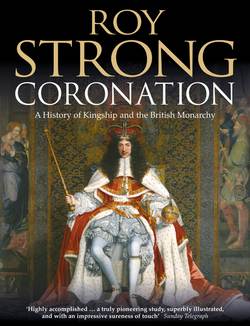Читать книгу Coronation: From the 8th to the 21st Century - Roy Strong - Страница 21
4 Sacred Monarchy
ОглавлениеIN SHAKESPEARE’S Richard II the Earl of Salisbury encounters a captain at a camp in Wales. The fate of the king is already sealed and the captain repeats a rumour that he is in fact dead. He then says:
The bay-trees in our country are all wither’d And meteors fright the fixed stars of heaven; The pale-fac’d moon looks bloody on the earth And lean-look’d prophets whisper fearful change; Rich men look sad and ruffians dance and leap, The one in fear to lose what they enjoy, The other to enjoy by rage and war; These signs forerun the death or fall of kings.
(II, iv, 11. 8–15)
Such a passage is a window into the minds of those who lived in the pre-Newtonian age. Belief in the occult and what, to a post-Enlightenment mind, would seem to be the irrational was the norm. The monarch in his kingdom was a mirror of the divine order reflecting God’s rule over the hierarchies of heaven. Thus the fate of kings signalled cosmic consequences as the God-ordained natural order of things had been violated.
